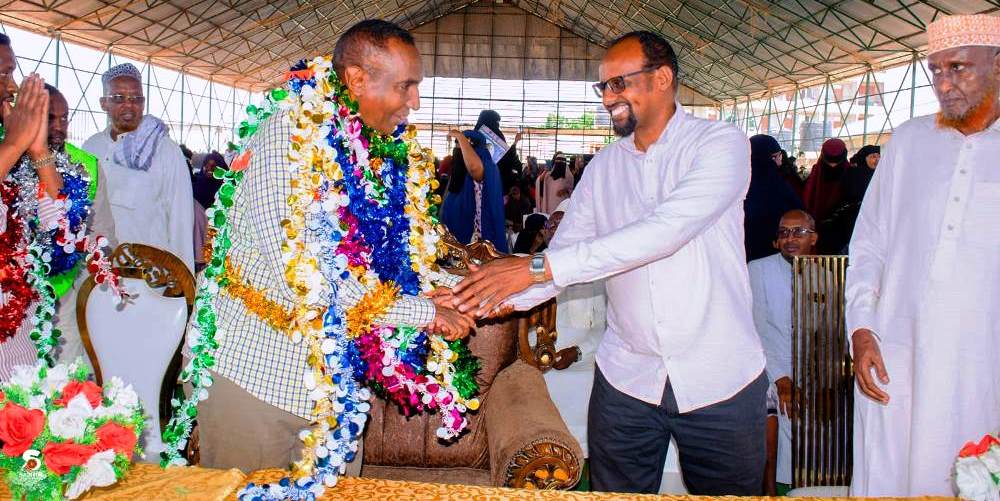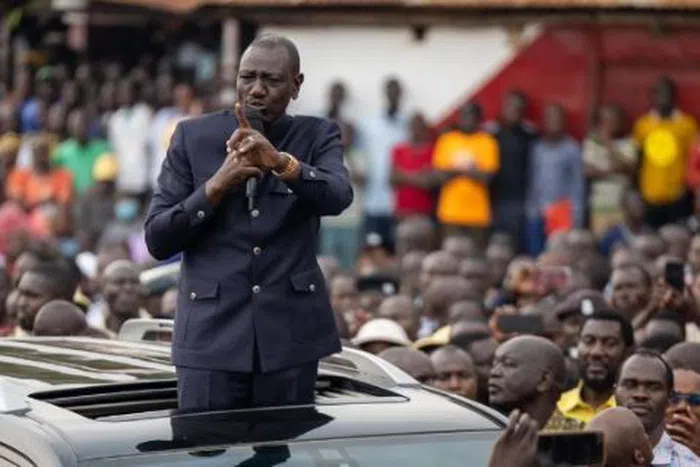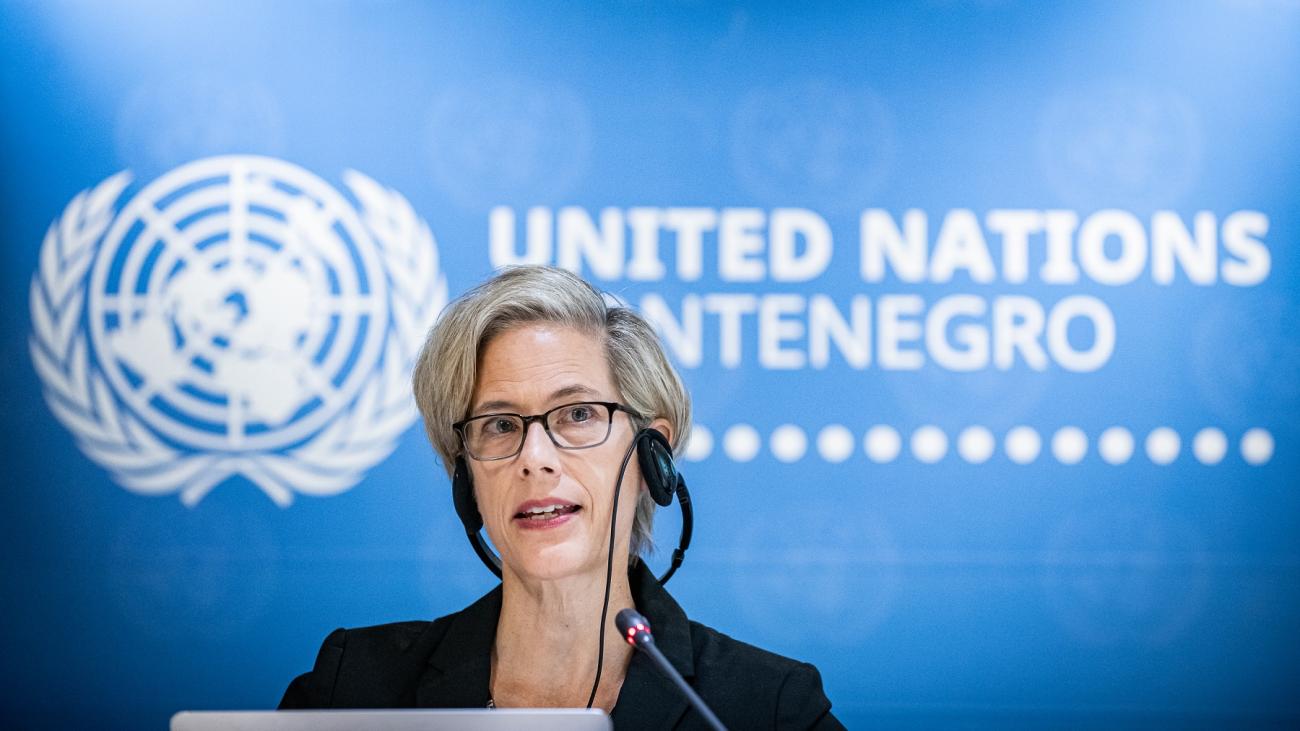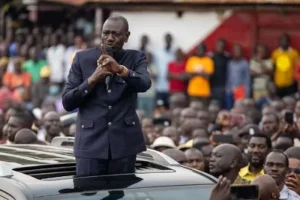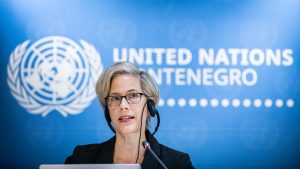President William Ruto inspecting a guard of honour during Madaraka Day celebrations in Homabay County. PHOTO/PRESIDENCY.
By SILAS NYANCHAWANI
newshub@eyewitness.africa
By SILAS NYANCHAWANI
There is always a deal around the corner; a tender here, a business breakthrough there. Even street language teems with hope. Street slang like Kuomoka, Kuondoka, kuchomoka, siku moja fomu itajipa. There is a belief that somehow, all of us, by some magic alchemy, we’ll make it.
In the interim, you might land a good deal. But the waiting period for the next one can break your heart as a man. You might lose your wife, children, girlfriend, mpango, and everything you own while waiting for the next opportunity or for a government tender to be paid.
I look back on my more desperate days before I started hawking books. I used to be called to meetings in high-end hotels. I’d sit across from senior government or NGO figures discussing strategy.
Java, Art Café, or the swankier spots in Kilimani, Lavington, and the many malls that dot Nairobi’s greener, leafier suburbs. I would leave such meetings thinking about which car to buy, what neighbourhood to move to, or whether to build my city home somewhere between Machakos and the Kajiado outskirts.
Kamulu always felt a bit off, while Kitengela had a secure, sunny charm. I could even call my Kisii girlfriend and we’d discuss vacation plans. Because I was talking to people who make decisions on how government or donor funds move. By the way, delusion is a very bad thing.
Back home, I would hammer out a proposal with my business partner (back then, there was no ChatGPT). Pages upon pages of proposals and PowerPoint presentations. Proposal safi kama Kelly Rowland.
And then the waiting would begin. The big man would stop picking up my calls. Blue ticks, painful, grey ticks are even more disrespectful. And once you start chasing these big men, you can lose your soul.
You befriend their PAs and secretaries, who update you on their whereabouts and when you might catch them. But kissing up to big men is nasty business. When I hear that some of you eat arse, I don’t even know how you do it, but please, stop.
Do women also have friends in high places they simp for?
Because in the corridors of big men’s offices, I only bump into men. The only women I see are either their mistresses with express access or the odd woman pursuing a CDF favour or similar.

President Ruto has said the Government is taking bold steps to curb unemployment. PHOTO/PRESIDENCY.
Then there are job applications. You apply until the day comes when you no longer want to apply. Because applying for jobs is just P.E. And LinkedIn? Honestly full of nonsense. Ever applied for those UN jobs that require four hours? Or the ones where, after applying via LinkedIn, you have to manually re-enter all your details in some tedious form and upload your CV?
Sometimes you have someone in the right place to vouch for you; except your contact doesn’t have enough sway, and the boss installs their far younger, far less qualified niece. That’s the way the world works.
Another six months go by. No business. No job. No deal.
Then you spot a tender. You know people who could help you swing it. You put in the paperwork. Tendering is ridiculously laborious. The last time, I printed almost 300 pages, spending my last supper money on it, betting on the connection.
That got me hungry for more, I did ten tenders. Got none. Later, you learn that the big man in the department has shell companies with his mistresses, nieces, and nephews, which they use to siphon the money. You are humbled.
And now you are 37. It’s been three years since your last decent deal.
Or you are 29, five years out of university, with no job or deal in sight. Now, dating and marriage are indefinitely postponed. If you’re over 37, you’re probably divorced; or soon will be.
This period of stagnation, where you wait indefinitely for a job post-graduation, is known as “Waithood”. If you are an adult, it’s called “Stalled Mobility”. Millennials in Kenya, especially those born between 1986 and 1995, have struggled to change their socio-economic status. There has been no upward mobility.
Instead, it’s mostly been downward. Most of my friends, who a decade ago could lend each other Sh100, 000 like it was pocket change, are now down to requesting Sh100-500 for “kabej”. The economy has wiped out many marriages I knew, and none of our public debates confront the elephant in the room: the economy.
It’s hard on women. It’s even harder on men. The Kenyan economy began collapsing in 2015, and the effects were visible by 2018-19. Covid-19 accelerated the crisis, but saved the Uhuru administration, because everything could be blamed on the pandemic. Ruto has no such luxury; he is badly exposed.
So, we now have two cohorts: younger adults in their mid-to-late 20s and early 30s with no job prospects, now missing out on all the traditional markers of adulthood; marriage, home ownership, career or business progression.
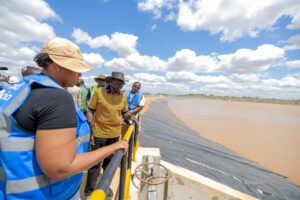
President Ruto inspecting food security project in Galana Kulalu in Tana River County. PHOTO/PRESIDENCY.
The second cohort, in their late 30s and 40s, once enjoyed good jobs, Nairobi-style deals, healthy marriages, and stable families, but for the last 3–5 years, they’ve been stuck. Same job, or sacked, same neighbourhood, or downgraded. “Stalled Mobility” has shattered their lives or everything good they ever had.
So we now have nearly three overlapping generations; those born between 1986–93, 1993–99, and 2000–2005, who can rightly be described as the lost generations. Already, nothing short of miraculous intervention can save most of them.
Pushed to the edge, a revolution may seem inevitable. But revolutions rarely solve problems. They merely level the playing field; everyone starts worse off, except a few who benefit from the ruins.
Kenya still has a chance to turn things around. A Kibaki-like figure; more inclined towards nationhood than narrow ethnic interests, and far less corrupt, could change our fortunes and unleash the country’s full potential.
Otherwise, “Waithood” and “Stalled Mobility” will haunt us for a long time. And if you sing “kumi bila break”, you will weep and gnash your teeth until 2040. Sadly, we don’t get any younger, and life is too precious to experiment with under lazy and inept leadership.
I really don’t want to sound like a genius in 2030 when you look back and remember what I told you that Kenya Kwanza is not an option in 2027. Three generations are at stake. Don’t trivialise this. If you intend to vote Kenya Kwanza, kindly block me and delete me from your life.
This is a matter of life and death. Hate me or love me.
